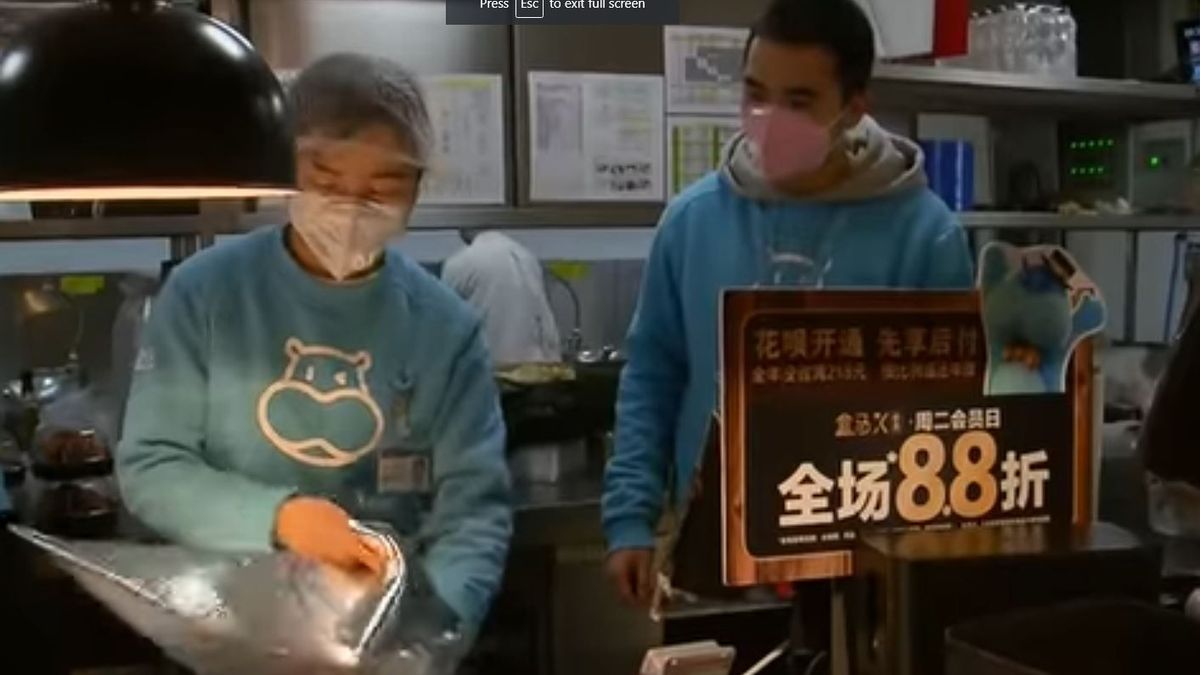JAKARTA - Low prices used to be the main factor that pushed Chinese consumers to prefer used products. But now they have one more reason besides Frugality, which is to fight climate change by reducing the carbon footprint of their lifestyle.
The former China's e-commerce industry has boomed amid the ongoing coronavirus pandemic and Beijing's decarbonization push. Now several trading platforms have raised large amounts of funds in the first half of the year to fund their expansion.
“With the uncertainty of the current economic situation and the increasing adoption of recycling and environmental protection concepts, it is a trend for consumers to trade second hand goods online for easy money,” said Cao Lei, Hangzhou-based Director of China E-commerce Research.
According to the research center, the former country's e-commerce market was worth 374.5 billion yuan (approximately 840 trillion rupiah) last year, and could grow to reach 411 billion yuan (Rp 922 trillion), this year.
China, where a quarter of consumer goods retail sales were made online last year, has the world's largest e-commerce market. But this boom has created a huge waste problem, as many items purchased impulsively are not used.
Even though the Chinese government has targeted to reduce carbon emissions radically. "China will reduce carbon emissions by more than 65 percent," said Xi Jinping, President of China.
Their production and transportation, as well as packaging and shipping leave a large carbon footprint. To counter this extravagance, Beijing is promoting a circular economy, for which a development blueprint for 2021-25 was published this month. This engages product designers and the supply chain in a way that allows packaging materials to be recycled to make new products.
This is where platforms like AiHuiShou International, the premier e-commerce platform for used computers, communication devices, and electronic products, backed by Tencent, enter the industry.
AiHuiShou raised US$227 million (via its initial public offering in New York last month. Founded in 2011, Aihuishou started as a provider of online and offline sourcing services focused on electronic devices. The company has also partnered with JD.com, as well as maker smartphones such as Xiaomi and Huawei Technologies, as a trade-in channel.With more than 800 offline stores in 170 cities across China, Aihuishou has sold more than 26.1 million used items on its platform in the 12 months to the end of March.
While Zhuanzhuan raised about US$550 million in the first half of this year, completing its last round of financing of US$100 million last month led by Chinese smartphone maker Xiaomi. The platform, which is backed by online classifieds company 58.com along with Tencent and Xiaomi, had 8.7 million active buyers and 3.9 million active sellers last year.
According to a source from the company, by trading second-hand goods such as smartphones, Zhuanzhuan has avoided the emission of more than one million tons of greenhouse gases in the past five years. Even reselling used smartphones can help reduce up to 52kg of carbon dioxide. .
The former fashion app Vestiaire Collective turned decluttering into a billion dollar business. The six-year-old company also trades used household appliances, furniture, apparel and games. After merging last May with Zhaoliangji, which means "looking for a good phone" in Chinese, the company is now focusing more on used phones, computers and consumer electronics products.
According to a report by Shenwan Hongyuan Securities, Zhuanzhuan together with Idle Fish, has garnered 90.9 percent market share. Meanwhile, according to a report released in March by the Development Research Center of the State Council, Idle Fish alone helped prevent 24.9 million tons of carbon emissions in 2019, equivalent to 11 percent of the industrial sector's carbon footprint in Zhejiang province in 2017.
Their platform has attracted about 300 million users as of April, and has recycled about 50,000 tons of clothing, 23.7 million books, 3.66 million cell phones and 1.45 million household appliances over the past four years. Zhuanzhuan, also backed by Tencent, has now avoided the emission of more than one million tons of greenhouse gases in the past five years.
Thanks to China's creativity and technology, it is proven that the problem of carbon gas emissions that haunts advanced industrial countries can now be avoided, and can even become a profitable business through recycling used goods.
The English, Chinese, Japanese, Arabic, and French versions are automatically generated by the AI. So there may still be inaccuracies in translating, please always see Indonesian as our main language. (system supported by DigitalSiber.id)










